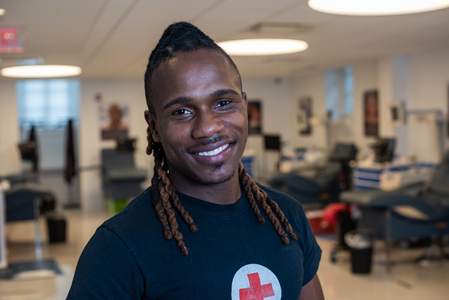“My son began attending GHS for the learning center a year ago. The progress he has made has been phenomenal. His language and social skills have improved so much, and they are very focused on the parent relationship for communication to help a child in all settings.”
— Flint mother

THE ISSUE
Health equity is essential to creating a thriving community that promotes the health and well-being of all residents. Not only do healthy residents enjoy greater quality of life, they also contribute to increased economic productivity of the community overall. The COVID-19 pandemic brought increased attention to significant health inequities that exist in the United States. Communities like Flint are more at risk because socioeconomic factors and environmental issues like the water crisis led to increased vulnerability to diseases and other negative health outcomes. While there has been some improvement in health outcomes, such as life expectancy, Genesee County still ranks 82nd out of 83 Michigan counties for overall health outcomes. Infant mortality in Flint, for example, has drastically increased over the past five years and far exceeds the rate in Genesee County.
THE RESPONSE
Recognizing the need to reduce inequities in health care and address compounded health concerns, local institutions of higher learning, health providers, philanthropic organizations like the Mott Foundation, nonprofits and other community-based organizations are working collectively on initiatives that promote better health for Flint residents.
For example, the Genesee Health System’s Center for Children’s Integrated Services is a state-of-the-art, family-centered space that offers Genesee County families health care services and behavioral supports in one place. Similarly, the Genesee County Free Medical Clinic, which provides high quality comprehensive medical care and health care education at no cost, is another example of efforts to strengthen health care for residents. Other initiatives include the Michigan State University College of Human Medicine Flint campus expansion, the Flint Public Health Youth Academy, the Greater Flint Coronavirus Taskforce on Racial Inequities and the Genesee County Prevention Coalition. Through these efforts and many others, the groundwork is being laid to help Flint residents increase their health and overall well-being.
Facts & Figures




DID YOU KNOW?
In 2021, Black residents accounted for 20% of the Genesee County population but only 3% of its blood donors. This disconnect is leaving the Black population underserved for an adequate blood supply specifically matched to blood type. For instance, because most people in the U.S. who have sickle cell disease are Black, the most compatible blood type match is often from a donor of the same race or ethnicity. The Blood Saves Lives initiative aims to triple the number of Black donors in Flint and Genesee County by 2025, which will result in better outcomes for Black patients who depend on blood products.
For more information on the Blood Saves Lives Initiative or to find a blood drive near you, please contact the American Red Cross of East Central Bay Michigan at 810-232-1401 or visit redcross.org/local/michigan.

